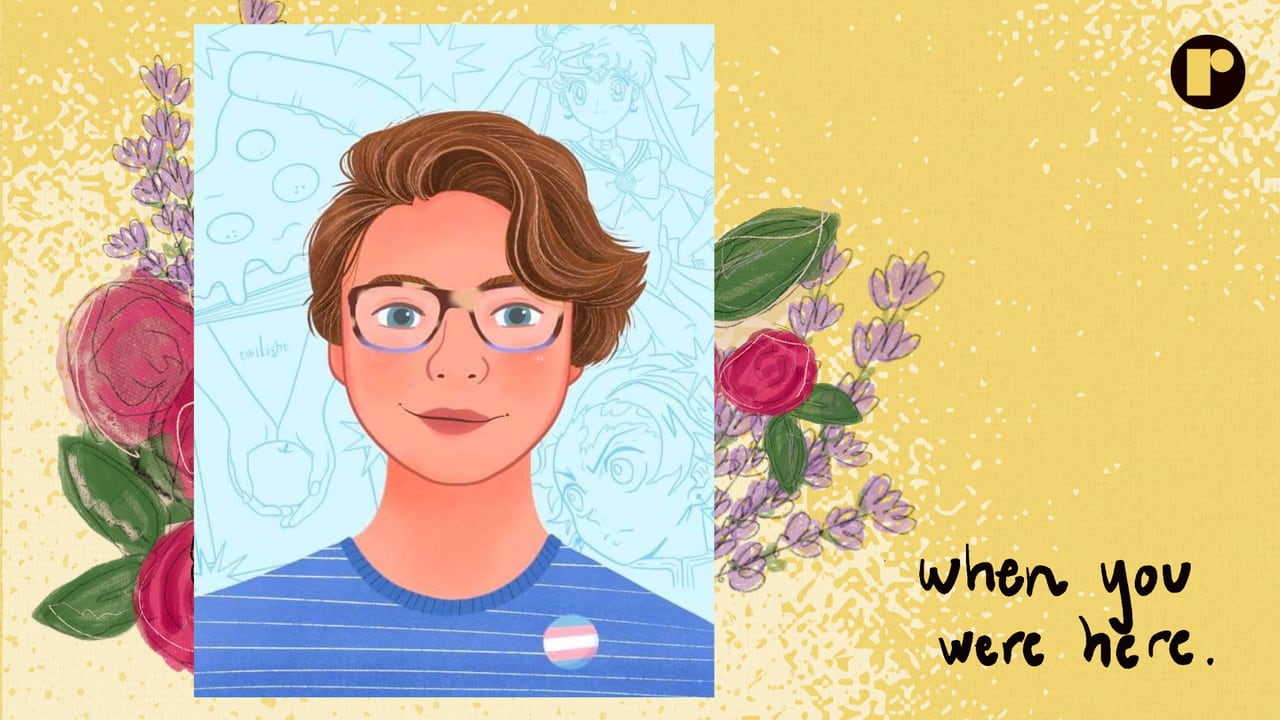When You Were Here: A world in color at Jacob Williamsonâs fingertips
This piece is part of When You Were Here, a series commemorating trans people whose lives were taken. Rather than centering their murders, our stories incorporate memories from people who loved them to illuminate the times when they were alive—when they were here.
From her car, Promise “Lulu” Edwards tells me over the phone while choking through her tears that Jacob Williamson was an extremely artistic child. The 18-year-old trans boy always carried a composition notebook when he was a child, sketching out his own anime characters along with their stats, such as what kind of powers they had.
“I just remember him always being very excited to show me his new drawings, and I would always tell him ‘That’s getting good! You’re getting good!’” Edwards said. “I used to tell him when he was [around] 10: ‘You can make video games one day when you get older.’ He was just so spunky and loving. Mature beyond need, but vulnerable.”
When Williamson arrived at his Lulu’s front step at the end of May of this year, he had nothing but the clothes on his back and a stuffed owl plushie.
He had called Edwards and got an hour and 45 minutes ride from a friend to Laurens, S.C. to stay with her after his mom rejected him for his trans identity. Edwards, now 37, was best friends with Williamson’s birth mom since the second grade.
When they were 16, Edwards’ mother took Williamson’s mother in to provide her a better housing situation, and the two teenagers grew even closer. When Williamson’s mother got pregnant with a cook, she had Jacob, and Edwards had been a second mother figure to him ever since.
When Williamson was 12, he and his younger sister lived with Edwards while his mother was repairing their home. At the time, he was obsessed with the movie Twilight, and frequently drew the infamous cover of Stephanie Meyer’s book that inspired the movie: a bright red apple enveloped in both palms. Edwards often teased Williamson, asking him “What are you, the produce man?”
That’s when Williamson would light up, explaining the story of Twilight and its universe of vampires and werewolves—though it was the werewolves he loved the most. One of them he loved above the rest: a werewolf named Jacob, famously played by Taylor Lautner.
“I literally just made the connection right now,” Edwards admitted. “That’s why he picked ‘Jacob’ as his name.”
Under Edwards’ motherly care this summer, Williamson worked at Waffle House with her—a job she had worked at for 14 years. It was his first and only job. Those few weeks were a highlight for Edwards, who recalls a story of when she saw a black snake in the corner of her bathroom. When she screamed, Williamson went into the backyard and climbed up underneath the house to get the snake out through the insulation.
“He even named the snake Mr. Slithers!” she said.
One day, Edwards took him to The Opportunity Village nearby in Easley, a faith-based program for community members to get back on their feet and find long-term employment and housing. When they left, he felt discouraged because their Christian point of view didn’t align with his queer and trans identity, and so he went through Edwards’ music library to play songs in the car.
That’s when he discovered “Monsters,” by rock band Shinedown. One verse goes: “Leave the light on if you’re able. Cuz we both know you’re unstable. Call a doctor, say a prayer. Choose a god you think is fair.” It became an anthem for Williamson.
Although Edwards struggles to return to this song, she reflects on what she hopes her relationship with Williamson meant to him.
“I hope he knew how much I loved him just for who he was—not for what he could do for me or what he said to me. No conditions.”
